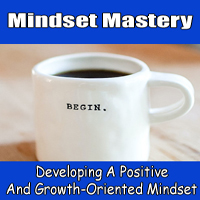



Procrastination, the cunning adversary lurking in the shadows of our ambitions, can be a formidable obstacle to productivity and success. However, the battle against procrastination can be won by cultivating effective work habits. These habits are the key to breaking free from the cycle of delay and becoming a more efficient and accomplished individual.
Understanding The Power Of Habits: Habits are the routines and behaviors we perform automatically, often without conscious thought. They have the power to shape our lives, either propelling us toward success or hindering our progress. Procrastination often emerges as a detrimental habit, but by building effective work habits, we can turn the tide in our favor.
Strategies For Building Effective Work Habits:
Set Clear And Attainable Goals: Effective work habits start with setting clear, specific, and achievable goals. When you know what you want to accomplish, you are better equipped to plan your work and stay on track.
Prioritize Tasks: Prioritization is the cornerstone of productivity. Use the Eisenhower Matrix to categorize tasks as urgent and important, important but not urgent, urgent but not important, or neither. Focus your energy on tasks that fall into the first two categories.
Create A Work Schedule: Develop a daily or weekly work schedule that allocates dedicated time for specific tasks. Having a structured routine can minimize the temptation to procrastinate.
Break Tasks Into Smaller Steps: Large or daunting tasks are more likely to trigger procrastination. Break them down into smaller, more manageable steps. This approach makes the overall task seem less overwhelming.
Use Time Management Techniques: Effective time management techniques, such as the Pomodoro Technique or time blocking, can help you maintain focus and increase your productivity.
Minimize Distractions: Identify common sources of distractions in your workspace and take steps to minimize them. Turn off unnecessary notifications, create a dedicated work environment, and use noise-canceling headphones if needed.
Practice Consistency: Consistency is the hallmark of effective work habits. Stick to your schedule, meet your daily goals, and avoid giving in to procrastination triggers.
Seek Accountability: Share your goals and progress with a friend, mentor, or colleague who can help keep you accountable. Knowing someone is monitoring your efforts can provide a powerful incentive to stay on track.
Celebrate Achievements: Acknowledge and celebrate your accomplishments, no matter how small. This positive reinforcement can boost your motivation and reinforce your effective work habits.
The Transformational Power Of Effective Work Habits: Cultivating effective work habits is a transformative journey that can lead to increased productivity and success. These habits empower you to take control of your time, set and achieve your goals, and break free from the grip of procrastination.
Building effective work habits is the antidote to procrastination. By setting clear goals, prioritizing tasks, creating a structured schedule, and maintaining consistency, you can overcome the lure of delay and become a more productive and accomplished individual. The road to success is paved with these effective work habits, and it's up to you to embark on this transformative journey to combat procrastination and achieve your aspirations. Remember, the power to break free from procrastination lies within your grasp.




The Art Of Prioritization And Well-Being
 The Modern Dilemma
The Modern Dilemma
The modern world is filled with endless opportunities and distractions, making it challenging to juggle our personal and professional lives effectively. Whether it's meeting work deadlines, managing household chores, or pursuing personal aspirations, we all face a constant struggle to find equilibrium.
Balancing life's demands is not about eliminating stress or responsibilities; it's about finding the right balance that allows us to thrive without feeling overwhelmed. When we fail to strike this balance, it can lead to burnout, reduced productivity, and a decline in overall well-being.
Strategies For Success
 1. Technological Overload
1. Technological Overload
One of the most prominent challenges of modern life is the constant influx of technology. While technological advancements have brought remarkable convenience, they have also introduced the struggle to maintain a healthy balance. The pervasive presence of smartphones, social media, and digital devices can lead to information overload, screen addiction, and reduced face-to-face interaction.
Strategy: To tackle this challenge, individuals can set boundaries for screen time, practice digital detox, and engage in regular offline activities to reconnect with the real world.
2. Work-Life Imbalance
Modern life often blurs the line between work and personal life. With the advent of remote work and the gig economy, individuals find it challenging to switch off from work responsibilities, leading to increased stress and burnout.
Strategy: Establishing clear boundaries between work and personal life, creating designated workspaces, and adhering to a structured schedule can help mitigate the effects of work-life imbalance.
3. Mental Health And Well-Being
The fast pace of modern life can take a toll on mental health and overall well-being. Constant exposure to stress, social pressures, and the expectations of high achievement can lead to anxiety, depression, and burnout.
Navigating The Journey Of Self-Discovery
 Define Your Goals: Clearly define your goals. These goals act as destinations on your roadmap. Whether they're related to your career, personal development, relationships, or any other aspect of life, having well-defined objectives will provide you with a sense of purpose and direction.
Define Your Goals: Clearly define your goals. These goals act as destinations on your roadmap. Whether they're related to your career, personal development, relationships, or any other aspect of life, having well-defined objectives will provide you with a sense of purpose and direction.
Set A Plan: A roadmap is only effective when it comes with a plan. Break down your goals into actionable steps. Consider what skills, knowledge, or resources you need to acquire. Creating a strategic plan will ensure you stay on track.
Lifelong Learning: To reach your potential, you must embrace lifelong learning. Seek knowledge, acquire new skills, and stay curious. Engage in reading, attend workshops, take courses, and surround yourself with individuals who inspire you to grow.
Resilience: Challenges are inevitable on your journey to potential. Resilience is your ability to bounce back from setbacks. Accept that you might encounter obstacles and setbacks, but also recognize that they are opportunities to learn and grow.
Consistent Action: Potential isn't unlocked by intention alone; it requires consistent action. Make a habit of taking small, purposeful steps toward your goals every day. Consistency leads to progress.
Positive Mindset: A positive mindset is your driving force. Focus on solutions, cultivate optimism, and maintain a "can-do" attitude. This mindset not only fuels your confidence but also attracts opportunities and positive outcomes.






Keys To Self-Awareness And Personal Growth
 The Role Of Self-Awareness
The Role Of Self-Awareness
Self-awareness is the ability to observe and understand one's own thoughts, emotions, and behaviors. It is a vital component of personal growth because it enables individuals to recognize their behavioral patterns and make conscious choices about how they respond to different situations.
The Significance Of Recognizing Behavioral Patterns
Improved Relationships: Understanding your own behavioral patterns allows you to better understand the behaviors of others. This insight can lead to improved communication and empathy in your relationships.
Effective Problem-Solving: Recognizing patterns in your decision-making process can help you make more informed and effective choices. Identifying past mistakes can prevent their repetition.
Stress Management: Knowing how you typically react to stress can help you develop healthier coping mechanisms. It can lead to a reduction in stress-related health issues.
Personal Growth: Identifying limiting or destructive behavioral patterns is the first step toward personal growth. Once you're aware of these patterns, you can work on changing them.
Recognizing And Managing Behavioral Patterns
Self-Reflection: Take time for self-reflection. Regularly analyze your thoughts, emotions, and behaviors. Journaling can be a valuable tool for this process.
Seek Feedback: Ask for feedback from trusted friends, family members, or colleagues. They may provide insights into your behavioral patterns that you might not be aware of.
Identify Triggers: Pay attention to the situations or triggers that lead to specific behaviors. Recognizing these triggers can help you prepare for and manage your responses more effectively.
Communication For Healthy Relationships
 Active Listening: After expressing your needs, encourage the other person to share their perspective and needs as well. Effective communication involves a two-way exchange.
Active Listening: After expressing your needs, encourage the other person to share their perspective and needs as well. Effective communication involves a two-way exchange.
Be Open To Negotiation: Be willing to compromise or find a middle ground to ensure both parties' needs are met.
Practice Empathy: Try to understand the other person's viewpoint and needs. This can foster mutual understanding and strengthen the relationship.
Seek Professional Help If Needed: In some cases, couples or individuals may find it beneficial to engage a therapist or counselor to facilitate discussions around complex needs and challenges.
Benefits Of Expressing Needs:
Effective expression of needs can enhance relationships in several ways:
Improved Understanding: It allows both parties to better understand each other's desires and expectations.
Conflict Resolution: Expressing needs can prevent misunderstandings and lead to more productive discussions during conflicts.